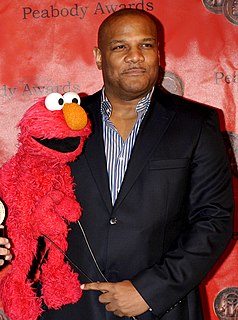A Quote by Kevin Clash
Sesame Street is the epitome of children’s television. It has continued to maintain the successful structure that was established in the beginning. Through it’s amazing research department, teaching has been made fun. This, the heart and humor works for children and adults alike, that’s why I’m very honored to be a part of it.
Related Quotes
Even though I had a great deal of respect for children's TV and theatre, it wasn't my intent to specialize solely in that area. I did indeed want to work on shows like "Sesame Street" and I am honored to be even a small part of that legacy, but I also wanted to do characters that had wider vocabulary and satirical humor.
Although adults have a role to play in teaching social skills to children, it is often best that they play it unobtrusively. In particular, adults must guard against embarrassing unskilled children by correcting them too publicly and against labeling children as shy in ways that may lead the children to see themselves in just that way.
Working with children is very different than the way in which I work with adults. I never tell the children the actual truth of the thing that I want them to act. Although children are really into play and play acting, and this is a major part of their existence, they never actually find the playing or acting of adults credible.
Although we like to think of young children's lives as free of troubles, they are in fact filled with disappointment and frustration. Children wish for so much, but can arrange so little of their own lives, which are so often dominated by adults without sympathy for the children's priorities. That is why children have a much greater need for daydreams than adults do. And because their lives have been relatively limited they have a greater need for material from which to form daydreams.
The new concept of the child as equal and the new integration of children into adult life has helped bring about a gradual but certain erosion of these boundaries that once separated the world of children from the word of adults, boundaries that allowed adults to treat children differently than they treated other adults because they understood that children are different.





























